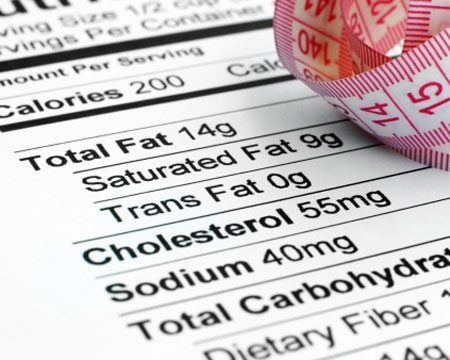Calorie Counting: Are All Calories The Same?
Overindulged during the holidays? Ate too many candies and cookies? Savored way too many rich dinners? After all of the excessive eating over the holidays, there's no better time than the new year to start taking a look at our diets.
One of the easiest ways to track food intake is by tracking calories. After all, 150 calories is what it seems, right? Well, maybe not.
Counting calories is basically counting the "energy content of food," according to the Food and Agriculture Organization of the United Nations or FAO. The current way to measure calories is by using the Atwater general factor system, a system that's been in use since 1896.The Daily Meal asked nutrition experts to weigh in on the pros and cons of this caloric system. Is it accurate or does it need revision?
Marion Nestle, a New York University professor in the department of nutrition andfood studies, as well as a sociology professor at the university, says the Atwater system, named after American chemist Wilbur Olin Atwater, "computes calories by weight of macronutrient: four calories per gram for protein and carbohydrate and nine for fat." "These take losses in digestion into account but do not account for certain heat losses in metabolism."
The FAO says the Atwater system "uses a single factor for each of the energy-yielding substrates (protein, fat, carbohydrate), regardless of the food in which it is found."
A Nutty Situation
But are all calories the same? Maybe not. A recent study published in the American Journal of Clinical Nutrition suggests the Atwater system overestimates almonds' energy content by more than32 percent, since the body doesn't metabolize all of the calories in the nuts.
"Calories are not created equal, as fat calories have the most energy, then protein, then carbs (sugar)," says Nicole Wright, founder and CEO of Food Body ME, who notes the Atwater system"measures what the body actually uses from what has been ingested."
Registered dietician Sharon Palmer, who is also the author of The Plant-Powered Diet, calls this study "very interesting" and says it opens the discussion about "how accurate our current calorie calculations really are."
She notes not all of the nuts' calories are fully absorbed during chewing and digestion.
"This might explain why people who eat nuts on a regular basis weigh less, even though we consider [nuts] to be high in calories," she says.
Despite the almond study, the Atwater system isn't necessarily outdated or inefficient.
"Atwater never intended the 'Atwater values' to be absolutes," says Nestle. "His own experiments showed that calories varied depending on the type of food."
Nestle doesn't think the Atwater system needs to be revised, because even if it's "imperfect," she says the system is "good enough."
Calorie Count Revisions
Revising the current calorie counting system would be very difficult.
"It would require repeating thousands of measurements and revising everything that depends on the current values," Nestle says. "What would be gained? Somewhat more accurate values but eaters don't count calories anyway. They can't unless they weigh everything that goes into everything they eat."
Palmer isn't so sure revising the system is necessary, explaining, "Many experts are starting to discuss the whole idea of whether calories are all that useful. Of course, lowering calories is important to losing weight—it's a balance issue, you need fewer calories (energy) in and more calories (energy) out to result in weight loss."
Measuring Your Calories
The almond study shows "foods and nutrients behave much differently in the human body than they do in a lab,"Palmer explains, noting,"The best diet for maintaining a healthy weight is one that is rich in whole plant foods—with lots of fiber and bulk."
How can you measure your calorie intake?
Robin Ferrier of the National Heart, Lung, and Blood Institute suggests tracking your meals and snacks.
"Some of the best ways to keep track of your calories are by keeping a food journal or using a smartphone app or computer app to help you do so," says Ferrier.
Watch serving sizes, too.
"The biggest source of error in calorie values by far is in inaccurate portion sizes," Nestle says. "Larger portions have more calories."
She says monitoring your body weight will help you gauge if you're consuming too many calories.
"If it's going up, you are eating more than you need," Nestle explains.
Instead of counting calories, Palmer thinks, "It may be more important to focus on foods—choosing nutrient-rich, high-volume foods in general—foods that are minimally processed and are high in fiber and water, offering satiety and powerful nutrient contribution for a total lower energy intake."
Kristen Castillo is an accomplished writer, editor and TV producer. She is the recipient of over 50 professional awards including two Emmy's. Read more about Kristen and her work on her website.
